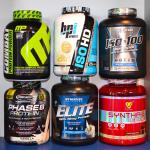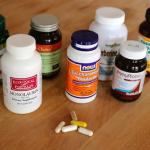The FDA is the nation’s most ubiquitous regulatory agency, responsible for overseeing products – drugs, medical devices, tobacco products, and most foods -- that account for about 20 cents of every dollar consumers spend. It is currently goi
supplements
The CDC data are based on all cases reported to the national poison data system, the American Association of Poison Control Centers’ dataset. Between 2012 and 2021, 260,435 pediatric ingestions of melatonin were reported, 2.25% of the total.
Join host Cameron English as he sits down Dr. Chuck Dinerstein to break down these stories on Episode 37 of the Science Dispatch podcast:
The easiest method I found to grade a web sites potential reliability was to do a word search for popular categories I was very familiar with, such as organic vs.
“Let food be thy medicine, and medicine be thy food.” - Hippocrates
The researchers analyzed the contents of 35 samples from 17 brands of over-the-counter supplements – half targeted for weight loss, a third for “energy/sports.”
What does this study report?
Let's consider liquor stores. They are considered essential services in New York. As someone who enjoys "an adult beverage," I'm down with that. But what about that other popular "adult pastime" marijuana.
Probiotics, like supplements, come under the regulatory oversight of the FDA.
Supplements, currently a $30 billion industry, are the best example of “it couldn’t hurt.” A meta-analysis of meta-analyses finds, once again, that supplements have no impact on the great killer, cardiovascular disease.
The FDA met last week in the first hearing to decide the regulatory fate of the cannabinoid CBD; you know the marijuana component that has no or little psychoactive effect. At the most basic of levels, a drug is a chemical.












